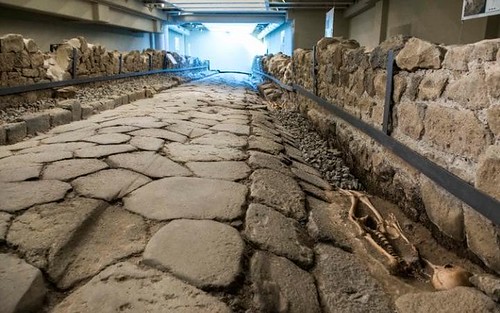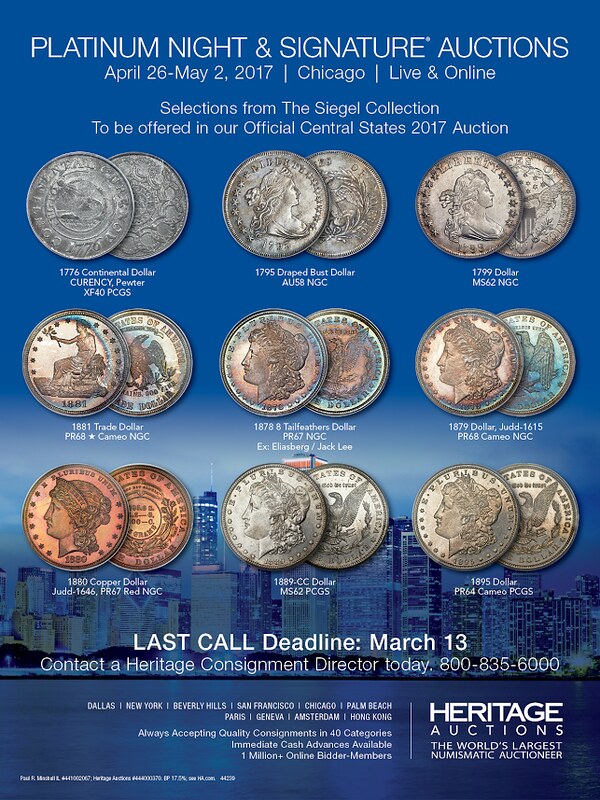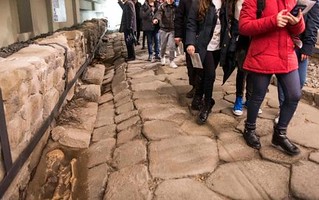
PREV ARTICLE
NEXT ARTICLE
FULL ISSUE
PREV FULL ISSUE
MCDONALD'S FEATURES AN ANCIENT ROAD
It's not numismatic, but I think collectors would appreciate this new McDonald’s restaurant south or Rome which incorporates an ancient Roman road. Can you pay for your Big Mac with a sestertius and get change in Roman bronzes? This Telegraph article was also found via The Explorator newsletter.
-Editor

Two thousand years after legionaries tramped along its well-worn paving stones, an exceptionally well-preserved stretch of Roman road has been opened to the public – beneath a McDonald’s restaurant. In what the American burger chain says is its first museum-cum-restaurant anywhere in the world, the 150ft-long stretch of basalt road has been cleared, cleaned and made into a permanent attraction at Frattocchie, south of Rome. Customers in search of a little cultural heritage along with their Big Macs and fries can descend underground and view the Roman road, as well as three ancient skeletons that were found buried in the culverts either side of it. A transparent pavement means they can even peer down into the archaeological area while slurping milk shakes and munching McNuggets. The unusual find came to light in 2014 when the area was being excavated for a new McDonald’s restaurant. Archaeologists were summoned and the US fast food chain contributed 300,000 euros to the three-year restoration of the site. Experts say the paved road connected with the Appian Way, one of ancient Rome’s most important thoroughfares, which led from the capital to Brindisi on the Adriatic coast. The stretch of road is about 150ft long and more than 7ft wide. It was built in the 2nd century BC but fell into disuse by the 3rd century AD and remained buried for more than 1,700 years. The bodies are believed to have been buried in the period after the road was abandoned.
See there! A numismatic connection after all. The coin was not pictured in the article, however.
-Editor
Signs in English and Italian explain the history of the road and its discovery. It is accessible from the McDonald’s car park, so visitors do not have to eat in the restaurant to explore the newly-opened site.
To read the complete article, see:

Wayne Homren, Editor The Numismatic Bibliomania Society is a non-profit organization promoting numismatic literature. See our web site at coinbooks.org. To submit items for publication in The E-Sylum, write to the Editor at this address: whomren@gmail.com To subscribe go to: https://my.binhost.com/lists/listinfo/esylum All Rights Reserved. NBS Home Page Contact the NBS webmaster 
|
